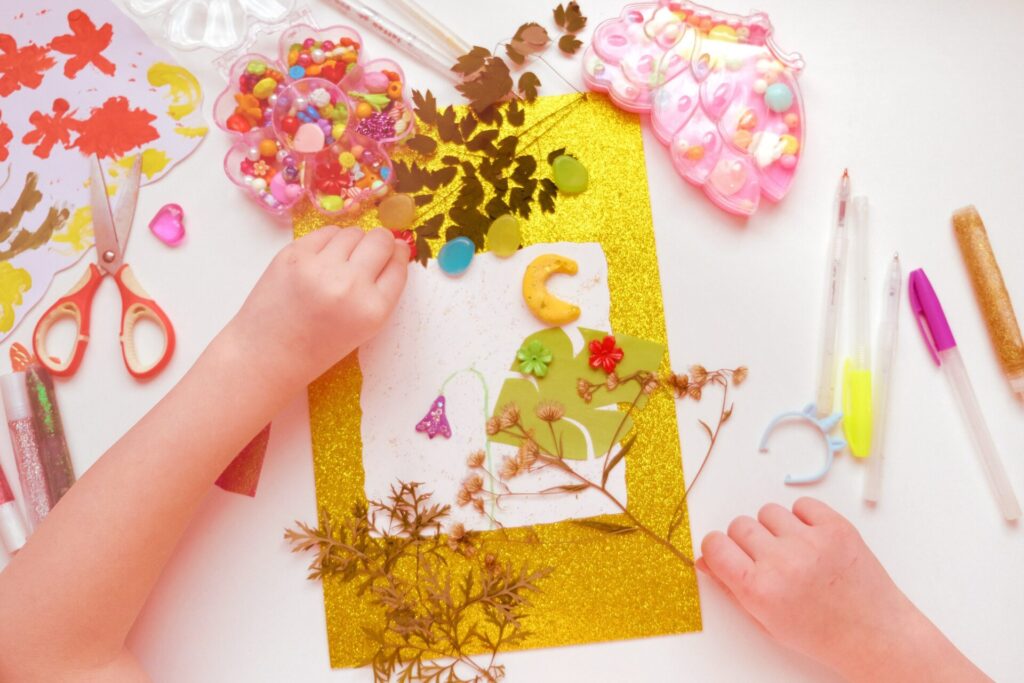If you’re feeling burnt out by gentle parenting, you’re not alone. Keep reading for a rundown on the struggles many parents face and how finding balance can make all the difference.
When I was about 16, my family went out for dinner to celebrate the end of a school year. As soon as the server showed us to our table, I could tell it wasn’t going to go well. We were seated next to a set of parents and two school-aged boys, and there was already food all over their table and the floor. The older of the two boys was in the middle of a tantrum that the dad was struggling to defuse in a gentle, soft voice. The mom was physically trying to pry her younger son off of her, pleading tenderly with him to sit down and finish his meal. In the midst of the extraction, the younger boy elbowed his mom in the face, hard. Her hand flew to her cheek and she said, exasperated, “Honey, why must you hurt me with your love?”
I thought my mom’s eyeballs were going to fall out of her head.
Needless to say, I was relieved when the family paid their bill and dragged their screaming kids outside. I remember turning to my mom at that point and saying, “What the heck was that?” And she said, “You can tell they’re trying hard to be even keeled, but I actually feel bad for them. They’re exhausted. And if they just set expectations and boundaries, they’d see a world of difference.”
I didn’t know it at the time, but this was my first introduction to “gentle parenting” as an approach to raising kids. Twenty-five years and two kids later, an article published on ABC News last week confirmed what my mom had said off-hand so many years before—that gentle parenting is great in theory but exhausting and overwhelming in practice. Its demands leave parents feeling completely burnt out, leading to high levels of stress and fatigue in a home.
The Concept of Gentle Parenting
I didn’t think about that restaurant interaction for years, until I read The Gentle Parenting Book by Sarah Ockwell-Smith when my kids were five and two. I’d started to wonder if there was something to this kinder, more empathetic approach to raising children that was popping up on social media. The idea that you could try for understanding instead of authority, or address a child’s needs instead of their behaviour seemed so valid. So, in the face of a few toddler and kid meltdowns—with Ockwell-Smith’s messaging in my head—I gave it a shot. I went for calm and soft, loving and supportive, instead of the in-charge, expectation-setting parent I naturally was.
Let me tell you, readers, it felt stressful and backwards, and did not work to defuse my kids at all. Instead, I just kept thinking about those parents I observed so many years before. I could easily see how this approach could spiral into angst and tension for everyone.
Now, that’s not to say we should ignore the concept altogether. There is scientific evidence to support the idea that gentle parenting encourages emotional bonds between parents and children, and also fosters self-regulation in kids. Responding to a child’s needs before dolling out a punishment makes total sense, and leads to stronger emotional connection. But the question remains whether this is too idealistic when we’re talking about what kids need to grow up to be resilient, functioning adults.
The Impact of Gentle Parenting
Many parents report that they adopted gentle parenting principles in their daily lives because they believed that this method would lead to more emotionally intelligent children. But one of the most pressing issues with gentle parenting is the immense pressure it places on parents to remain calm, patient and emotionally attuned at all times. The philosophy demands an ongoing commitment to self-regulation and emotional availability for parents, which can be exhausting (no one can be the “calm in the storm” at all times!).
The Effect on Parent-Child Relationships
Interestingly, the stress experienced by parents practicing gentle parenting can negatively affect their relationships with their children, which is literally the opposite goal of gentle parenting principles. Kids act out, parents try to intervene in a gentle way, kids don’t respond, parents struggle to counter empathetically, everyone is frustrated and nothing gets resolved. Rinse, repeat. Many parents report increased conflict in their interactions with their children as a result of feeling overwhelmed and inadequate. This irony highlights a critical flaw in the gentle parenting model: the need for parents to be emotionally healthy themselves in order to foster healthy emotional environments for their children.
The Need to Find Balance
We’re not saying that gentle parenting doesn’t have its merits, but the key to sustainable parenting lies in finding a balance. Experts recommend integrating aspects of gentle parenting with other approaches that allow for flexibility and self-care. According to the experts, parents should prioritize their own well-being, recognizing that it’s okay to seek support, set boundaries and employ traditional parenting strategies. This balanced approach can help to foster a healthier family dynamic where everyone gets what they need.










